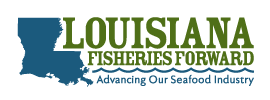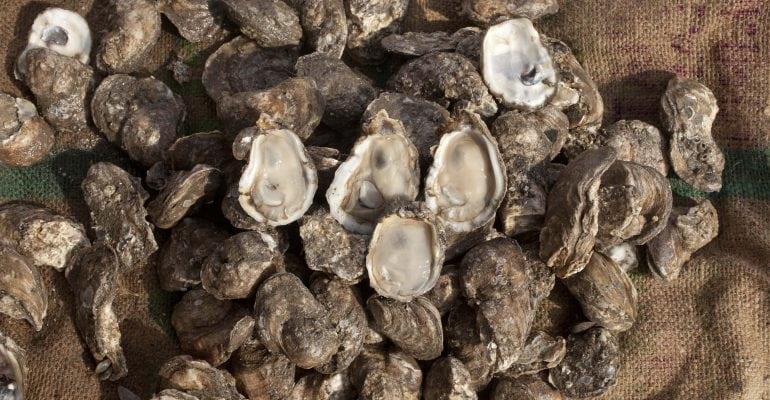Today, the Louisiana Wildlife and Fisheries Commission set the 2017-2018 oyster season based on the annual oyster stock assessment provided by Louisiana Department of Wildlife and Fisheries biologists and comments received from members of the public, including the oyster industry.
The following dates were set for the upcoming oyster season:
- Wednesday, November 1, 2017 – Calcasieu Lake: West Cove only
- Monday, November 13, 2017 – all Public Oyster Seed Grounds east of the Mississippi River, north of the Mississippi River Gulf Outlet (DHH Shellfish Harvest Areas 1-4), Bay Long/American Bay sacking-only area, Sister Lake, and the Vermilion/East and West Cote Blanche Bay/Atchafalaya Bay Public Oyster Seed Grounds will open at one half-hour before sunrise
- Tuesday, November 14, 2017 – the following areas will close to seed harvest on November 13 but remain open as sacking-only areas: all Public Oyster Seed Grounds east of the Mississippi River, north of the Mississippi River Gulf Outlet (DHH areas 1-4) and Sister Lake
During the 2017-2018 open oyster season, the following provisions will be in effect:
1. Any vessel from which any person(s) takes or attempts to take oysters from the public oyster seed grounds and reservations described above shall:
a. Be limited to a daily take and possession limit not to exceed 50 sacks of oysters per vessel, except for in the Sister Lake Public Oyster Seed Reservation where the limit shall not exceed 35 sacks per vessel, and except for in the West Cove portion of Calcasieu Lake where the limit shall not exceed 7 sacks per person per vessel per day. A sack of oysters for the purposes of this declaration of emergency shall be defined as the size described in R.S. 56:440. If sacks smaller than the size described in R.S. 56:440 are used, the daily harvest and possession limit shall be based on the number of sacks harvested. The daily take and possession limit will not apply to vessels harvesting seed oysters for bedding purposes. The possession limit will not apply to vessels operating under a valid Oyster Cargo Vessel Permit, and these vessels cannot harvest oysters.
b. Be limited to either harvesting market oysters for direct sale (sacking) or harvesting seed oysters for bedding purposes on any one day and is specifically prohibited from doing both.
2. If any person on a vessel takes or attempts to take oysters from the Public Oyster Seed Grounds, Reservations, or areas described above, all oysters contained on that vessel will be deemed to have been taken from said seed ground, reservation, or area from the time harvest begins until all oysters are offloaded dockside.
3. Prior to leaving Public Seed Grounds or Reservations with oysters harvested from said seed ground or reservation for market purposes: all oysters must be sacked, the number of sacks shall be recorded in a log book, and each sack shall be properly tagged.
4. All vessels located in Public Seed Grounds or Reservations during those times between one half-hour after sunset and one half-hour before sunrise must have all oyster scrapers unshackled.
5. In Calcasieu Lake, oyster scrapers are prohibited on vessels actively harvesting oysters.
The following areas will remain closed for the entire 2017-18 oyster season:
- the area east of the Mississippi River as described in LAC 76:VII:511, south of the Mississippi River Gulf Outlet (DHH Shellfish Harvest Areas 5,6,7,8), excluding the American Bay area defined above;
- the Bay Gardene, Hackberry Bay, and Bay Junop Public Oyster Public Oyster Seed Reservations as described in R.S. 56:434;
- the Little Lake Public Oyster Seed Grounds as described in LAC 76:VII:521;
- the Barataria Bay, Deep Lake, Lake Chien, Lake Felicity, Lake Tambour, and Lake Mechant Public Oyster Seed Grounds as described in LAC 76:VII:517;
- the east side of the Calcasieu Lake Public Oyster Area;
- the Sabine Lake Public Oyster Area as described in R.S. 56:435.1.
Closure dates, adjustments in sack limits and/or sacking-only areas will be determined by LDWF Secretary Jack Montoucet on an “as needed” basis, based on biological and harvest data, or if enforcement issues are encountered. The Secretary is also authorized by the Commission to take emergency action to reopen areas previously closed if the threat to the resource has ended and to open public areas if substantial oyster resources are located.
Public notice of any opening, delay, or closure of a season will be provided at least 72 hours prior to such action, unless such closure is ordered by the Louisiana Department of Health and Hospitals for public health concerns.
The Louisiana Department of Wildlife and Fisheries is charged with managing and protecting Louisiana’s abundant natural resources. For more information, visit us atwww.wlf.la.gov. To receive email alerts, signup at http://www.wlf.la.gov/signup.





